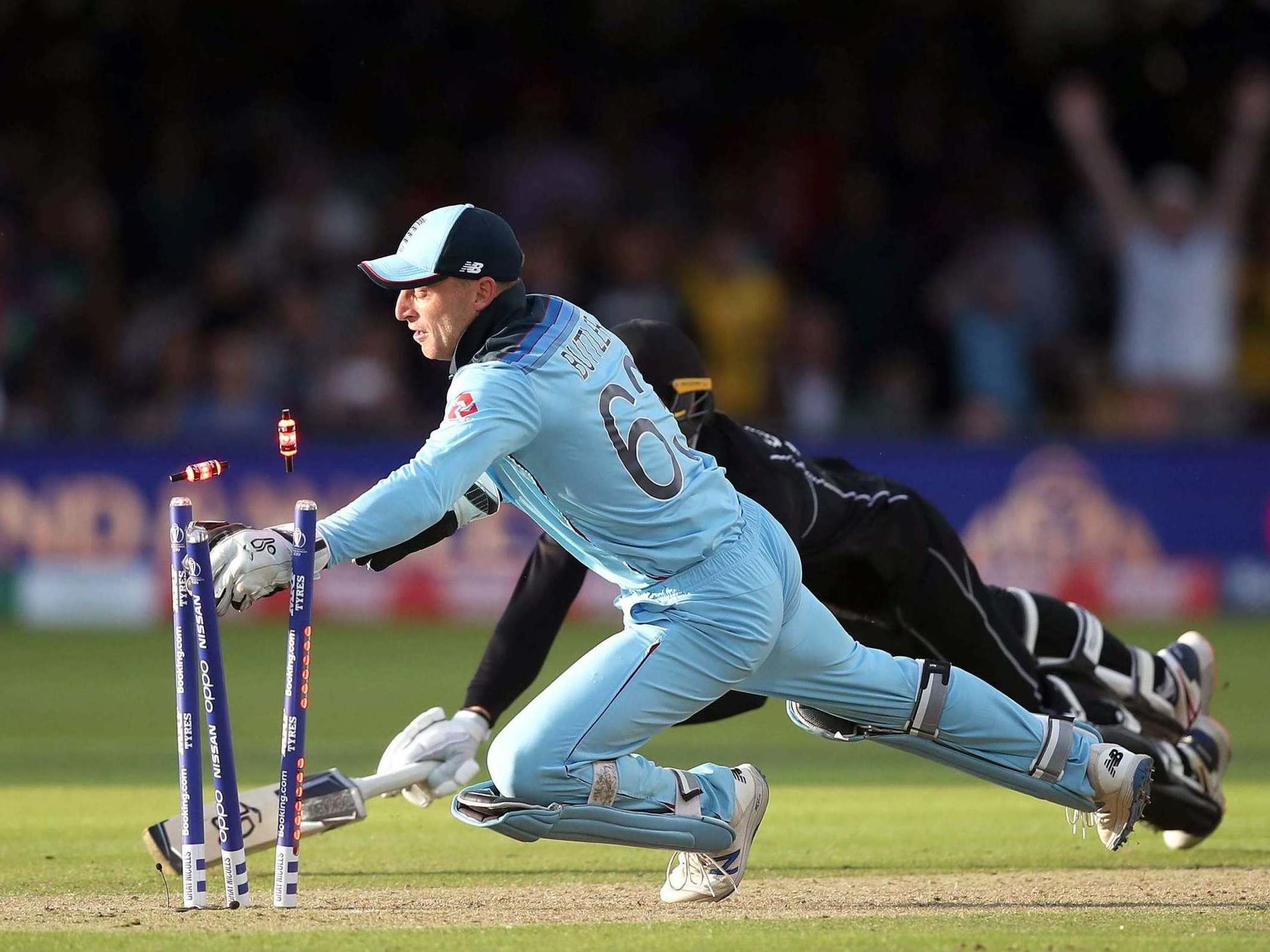This website uses cookies so that we can provide you with the best user experience possible. Cookie information is stored in your browser and performs functions such as recognising you when you return to our website and helping our team to understand which sections of the website you find most interesting and useful.

After more than a decade as a professional cricketer, playing in some of the biggest matches alongside and against some of the biggest names, Jos Buttler has a lot of memories. But he does not have much when it comes to memorabilia.
He has never been one for the material elements cricketers usually pick up, such as stumps from notable matches. Even the mementos he does possess are not for show. When he first came up against AB de Villiers, one of his heroes, he made sure to get a bat and shirt signed by the South African. The shirt is currently in a wardrobe at his London home, not framed nor on display, while the bat is at his parents’ house. Most of his own kit also finds its way to his family with a view to redistributing them to organisations and causes, ranging from charities to schools.
The majority of his Somerset shirts adorn the walls of cricket clubs such as Glastonbury and Cheddar. Most of his recent England and Lancashire kit, along with his bats, are under the watchful eye of his mother and sister, who give them away to raffles and auctions. The only extra bit of work needed is to block out the “F*** IT” inscriptions on the top of the handle. They even have a stash of autographed photos for when requests come in and Jos is on tour. The Buttlers are something of an unofficial committee when it comes to dishing out Jos's kit.
But when the 29-year-old sent a message to his sister last week asking her to auction off the shirt he wore when he affected the run-out that won England their first 50-over World Cup, she finally questioned his generosity. Was he sure? Will he regret it in 20 years’ time?
So when she put the item on eBay, but on a 24-hour delay – in case Jos had a change of heart. He didn’t, of course, and the item went live on 31 March. Privately he guessed it would fetch around £10,000. With a day to go at the time of writing, the highest bid is £65,800.00.
For Jos the memories of that historic day are carried in the moment on the field when he gathered Jason Roy’s throw in front of the stumps to run out New Zealand’s Martin Guptill in front of a packed crowd that remains so vivid. The celebrations in the Lord’s changing room and back at the hotel. Plus, he still has his bat from that match which scored 59 in the chase and those precious seven runs in the Super Over.
“It just felt like a good thing to do and a great way to help,” he said. “Obviously, the fashion in which the World Cup was won everyone was very aware of that day, and the drama that unfolded, so it carries a story with it as well, which I think has made it have the impact it has.
“Hopefully this won’t go on for much longer and it doesn’t become an emergency, but potentially there could be other things that myself and other players and cricketers around the world could auction off to raise money if it’s needed.”
All of the money will go towards Royal Brompton & Harefield Hospitals Charity and their Covid-19 emergency appeal. The sum due to be raised will be more than enough to fund a £62,000 Extracorporeal Membrane Oxygenation machine (ECMO) – a device that does the work of a patient’s lungs or both the heart and lungs, and is thus crucial to the combatting of coronavirus. There is a personal element to this, too, with Buttler’s father and nephew suffering from heart conditions. He knows what is like to have loved ones on ventilators.
Just days after the auction, Buttler and his England team-mates came together to donate the equivalent of a 20 per cent pay cut over three months - amounting to £500,000 - back to the England & Wales Cricket Board and selectable charitable causes.
But it is Buttler’s shirt and its worth that truly shines a light on what we need from our sport and our stars. Not only are they digging into their pockets, they’re digging through their possessions.
The Arsenal shirt worn by Thierry Henry when he scored his 100th goal for the club is being auctioned to raise funds for the NHS by ex-Birmingham City midfielder Robbie Savage, who has been in possession of it since 2003 when the pair swapped shirts at the end of the game. Athletes such as NBA star Steph Curry, gymnast Simone Biles and swimmer Michael Phelps are just three high-profile names in the “Athletes For Relief” programme in America who have donated items to be raffled to donors who make a minimum $25 donation.
As a piece of clothing, Buttler’s shirt represents the bumps and falls he had to pick himself up from to be in a position to put it on that Sunday in July. Within its long sleeves are 50 overs of graft, plus one Super Over. Sweat, tears and champagne marinated into its fibres right the way through to 7am the next morning, when he finally took it off. It is physically and spiritually real, right down to its “pretty authentic smell”.
It’s not that this light blue shirt means nothing to Buttler. It’s that he realises the emotional value he places in it is dwarfed by the financial and life-bringing value it will now have for countless others.



 Africana55 Radio
Africana55 Radio 

